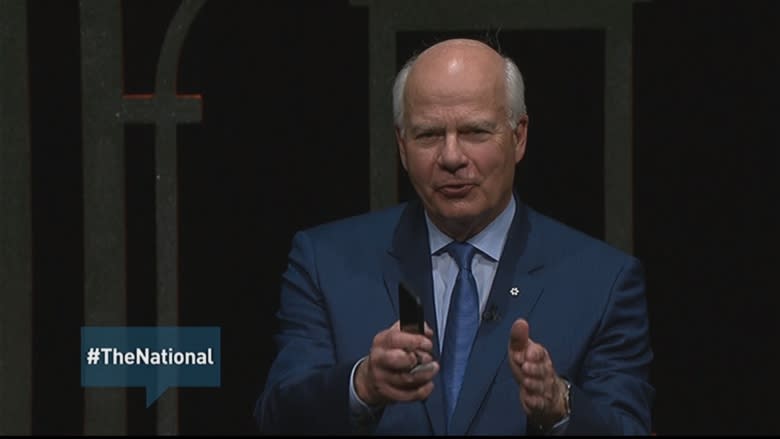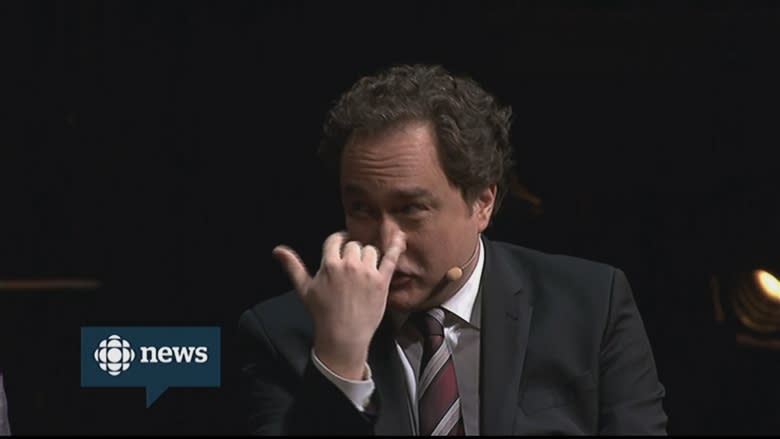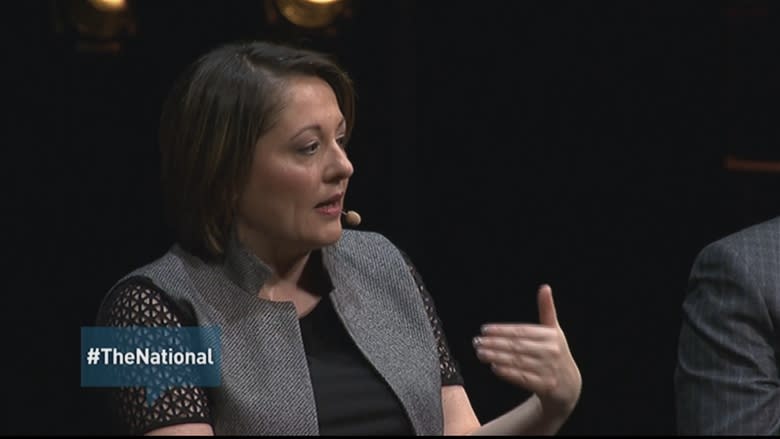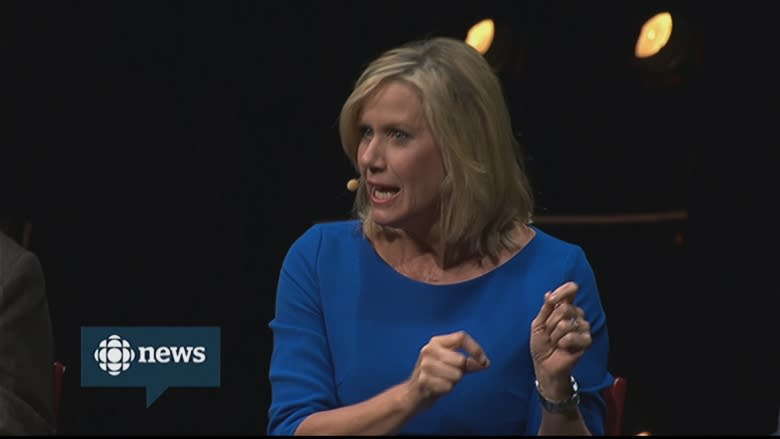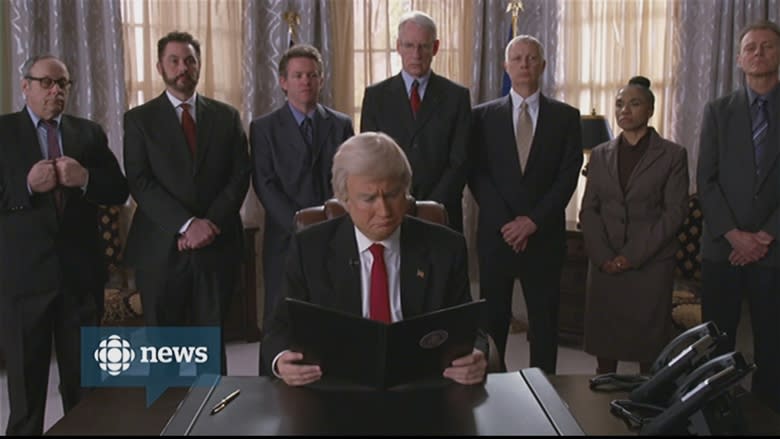The National in Conversation: 5 things we learned about the changing nature of news
Some of CBC's top journalists and personalities from around the country gathered in Charlottetown on Friday for a panel discussion about the changing nature of news.
Peter Mansbridge, CBC's chief correspondent, was the moderator. On the panel were senior correspondent Susan Ormiston, Power & Politics host Rosemary Barton, CBC News Now with Ian Hanomansing host Ian Hanomansing, CBC News: Nova Scotia and East Coast correspondent to The National Tom Murphy, columnist Rex Murphy and This Hour Has 22 Minutes star Mark Critch.
The 90-minute conversation touched on a range of topics — from how technology is changing the way news is reported, to how the actual news that is reported is shifting.
Here are five different things that came up over the course of the night.
1. It's hard to call someone a liar
"Part of the problem here is a lie truly defined is when you knowingly deceive. The problem is the knowingly part, because you're never really sure if they're absolutely sure that they're deceiving," said Mansbridge.
The panel discussed different ways they deal with lies — with some saying they call out lies, and others saying they let the audience decide where the truth lies.
"I find in an interview you can kind of get away with it, cause you can say, 'C'mon,' and that flash of truth on the person's face will kind of give it away," said Critch.
2. Rosemary Barton reads alt-right websites
After American election, Barton realized she wasn't reading any of the media sites that people who liked Donald Trump were reading.
"That's a problem. That's a problem for me, because then it means that my lens on what was happening was limited."
So, she said, she changed her reading habits.
"I think if you ignore it the problem doesn't go away, and part of our job, a political reporter's job … is to make sure I hear all the voices," she said.
3. Susan Ormiston taught Peter Mansbridge about Twitter
During the 2008 election, Ormiston taught Mansbridge how to tweet. Now, social media has changed the way she works.
"Lightning speed," is how Ormiston describes the pace. "News has become breathless, breaking."
And she said that requires a lot of caution — information still has to be checked independently.
4. Mark Critch gets to have a conversation with his haters
Social media hasn't just changed news, it has also changed news satire, said Critch.
"It gives you this access to make fun of someone and then have a dialogue with the people who hate you immediately," he said.
And, he said, that's a good thing.
"I think what's good is you get a very direct response from people right away."
5. Susan Ormiston wants to know what you think deserves more coverage
Ormiston said there are a lot of reasons for something getting a lot of news coverage while another will get almost none.
But, she said, the audience should question the media's priorities — and she wants to know what they think.
"We do need to listen more carefully to what people want to hear," she said.
"It's not just about what we think you need to know about news. It's what are you interested in that we can help you sort out, that we can try to translate in this complex world."
Want more?
Lots was said during the discussion — which can be viewed in its entirety online.
- MORE P.E.I. NEWS | Door could open for midwives with P.E.I. Registered Professions Act
- MORE P.E.I. NEWS | Wrestling championships in P.E.I. see increasing numbers of females

